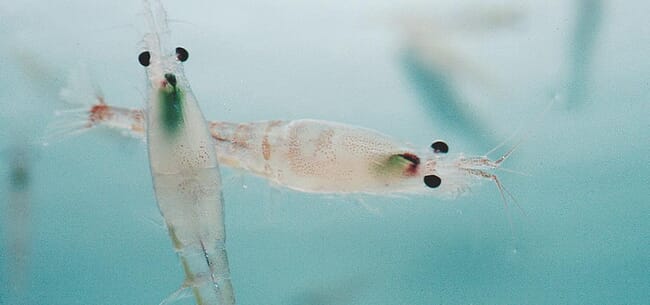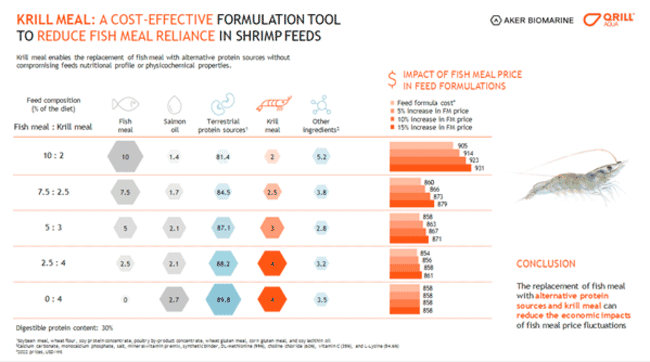
Adopting krill meal could allow shrimp farmers to overcome the challenges related to the fishmeal supply chain © Langdon Quetin
The scientists behind a recently released review article conclude that krill meal is an effective functional ingredient for shrimp feed that can mitigate some of the challenges related to the stagnating supply of fish meal, including nutrition and growth performance, while remaining cost effective for producers.
“Across the aquaculture industry, we are seeing changing feed formulations due to supply challenges and cost pressure. For shrimp farmers, this means that they need to take a new approach to their feed formulations and find the right ingredients to maintain high nutrition, growth performance and overall cost-effectiveness, while keeping sustainability top of mind,” says Lena Burri, director R&D for animal nutrition and health at Aker BioMarine.
A functional ingredient that stimulates growth and health
The Labomar and Aker BioMarine review emphasises the need to address the risk for missing essential nutrients in the dietary feed formulations for shrimp. Krill meal, as a functional feed ingredient, has shown through previous research that it can improve attractability, palatability and general health in shrimp.

The researchers conclude that replacing fish meal with alternative protein sources and krill meal can reduce the economic impacts of fish meal price fluctuations
“Besides its well-balanced amino acid profile, krill meal is rich in phospholipid-bound omega-3 fatty acids and adds further value to the feed due to its high levels of astaxanthin and choline, all of which are important for shrimp development at various life stages. In recent years, krill meal has become one of the most studied feeding effectors for shrimp,” says Burri.
According to the review article, krill meal is an increasingly well-recognised ingredient in the aquaculture industry due to its feed attractant and palatability enhancer capabilities. In previous research, krill meal has been studied alongside other marine ingredients, from salmon meal to squid meal – and has consistently proven to be the most effective at increasing the feed intake and improving the overall growth performance in both shrimp and fish.
Cost optimisation is possible with krill meal in the feed
“The dietary feed represents one of the main cost elements in shrimp production, which makes optimisation of the feed formulation critical for producers. We have seen through years of study that including just 3 percent krill meal in the shrimp diet can reduce feed cost and improve performance and feed intake in fish meal-challenged diets,” explains Alberto Nunes, professor and aquaculture nutritionist, Labomar.
“Our theory is that the growth enhancement factors that we’ve seen in our previous studies of krill meal for shrimp is due to the balance between krill’s high feed attractiveness and stimulation with its contribution of key nutrients,” adds Nunes.




